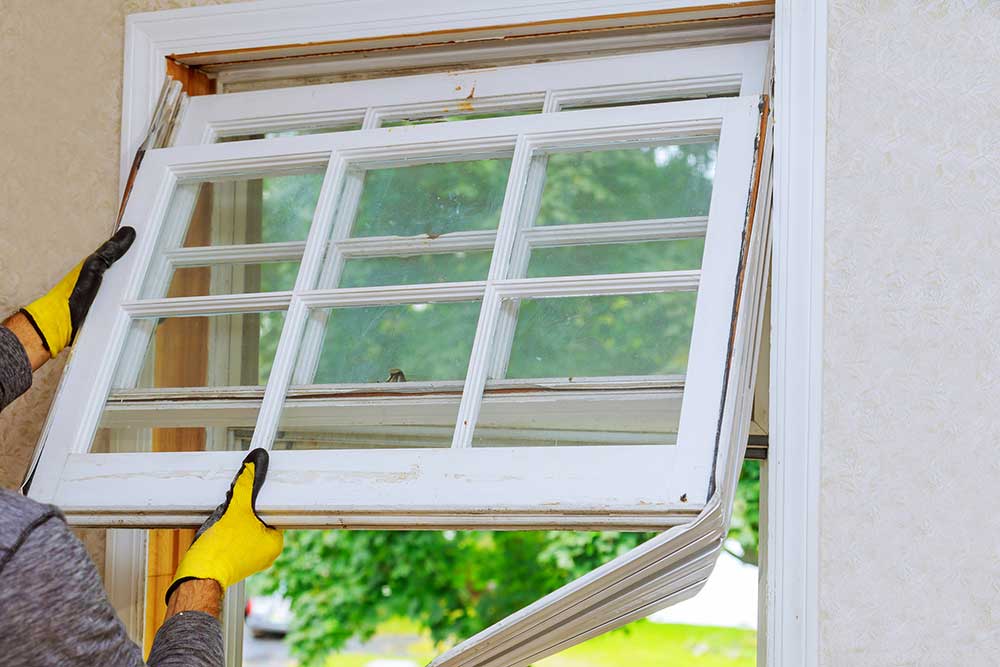The Essential Home Inspection Guide: Ensuring Your Dream Home Is a Safe Bet with Energy Efficiency Programs
Buying a home is a significant milestone, but it’s essential to approach this investment with caution and thoroughness. A detailed home inspection can mean the difference between securing a safe, comfortable residence and getting stuck with a problematic money pit. This guide will walk you through the crucial steps of a home inspection, helping you identify potential issues before they become your financial and emotional burdens.
Uncover Hidden Headaches: What Lies Beneath
A Thorough Scan Below the Surface
Before you get swept away by the charm of a new home, it’s vital to peek behind the curtain—or in this case, behind the walls, under the floors, and above the ceilings. Hidden issues in a house can range from minor inconveniences to catastrophic failures. For a thorough and professional inspection, visit http://www.theinspectorscompany.com website to ensure your potential new home is in top condition.
Start with the Basics
- Structural Integrity: Check for signs of foundation problems like cracks in walls or uneven flooring. These issues can indicate serious underlying problems that may require costly repairs. Structural issues can compromise the safety and stability of the entire house, making it essential to address them promptly.
- Roof Condition: Look for worn, loose, or missing shingles that could indicate leaks. A damaged roof can lead to water intrusion, causing extensive damage to the interior of the home. Additionally, roofing problems can affect the overall energy efficiency of the house, leading to higher heating and cooling costs.
- Water Damage: Keep an eye out for stains on ceilings or around the baseboards, which could suggest plumbing leaks. Water damage can lead to mold growth and structural deterioration if left untreated. Identifying and fixing leaks early can prevent more significant problems down the road.
Fun Fact: Did you know that termites cause over $5 billion in property damage each year in the U.S. alone? This is why checking for termites and other pests during a home inspection is crucial. Termites can silently destroy the wooden structures of a home, leading to severe damage that often goes unnoticed until it’s too late.
Expert Diagnosis: The Role of Certified Inspectors
Leveraging Professional Expertise
Certified home inspectors bring a level of expertise that is crucial for a thorough evaluation of the property. These professionals are trained to spot problems that might not be visible to the untrained eye.
What to Expect from a Professional Inspection
- Electrical Systems: Ensure that the wiring is up to code and that there are no potential fire hazards. Electrical issues can be dangerous and costly to repair, so it’s vital to identify any problems early. Inspectors will check for outdated wiring, overloaded circuits, and other potential hazards.
- HVAC System: Check the age, maintenance history, and current condition of the heating and cooling systems. An efficient HVAC system is crucial for maintaining a comfortable living environment. Inspectors will assess the system’s performance, check for leaks, and ensure that it is functioning correctly.
- Plumbing: Look for outdated piping materials, leaks, and functional issues with the sewage system. Plumbing problems can lead to water damage, mold growth, and other health hazards. Inspectors will check for signs of corrosion, leaks, and proper drainage to ensure the system is in good condition.
Interesting Insight: A typical home inspection can take about two to three hours for an average-sized house, but larger homes or buildings with known issues might take longer. The duration of the inspection can also depend on the complexity of the property’s systems and the thoroughness of the inspector.
Enhancing Home Value: Energy Efficiency Programs
In addition to a standard home inspection, considering energy efficiency programs can significantly enhance your home’s value and reduce future costs. Programs that focus on improving energy efficiency can offer benefits such as lower utility bills, increased comfort, and a reduced environmental footprint. For more information on how you can improve your home’s energy efficiency, visit http://alliedexperts.com website.
Benefits of Energy Efficiency Programs
- Energy Audits: Comprehensive assessments of your home’s energy use can identify areas for improvement. An energy audit can reveal inefficiencies in heating, cooling, insulation, and lighting, providing actionable insights to reduce energy consumption.
- Incentives and Rebates: Many programs offer financial incentives for making energy-efficient upgrades. These incentives can help offset the initial costs of improvements, making it more affordable to enhance your home’s energy performance.
- Improved Comfort: Enhancements such as better insulation and high-efficiency HVAC systems can make your home more comfortable year-round. Energy-efficient homes maintain more consistent indoor temperatures, reducing the need for frequent adjustments to heating and cooling systems.
- Environmental Impact: Reducing energy consumption not only saves money but also lowers your carbon footprint. Energy-efficient homes contribute to environmental sustainability by reducing greenhouse gas emissions and conserving natural resources.
Informed Negotiations: Using the Inspection Report as a Tool
Strength in Knowledge
A detailed inspection report doesn’t just inform you about the current state of the home—it also gives you leverage in negotiations. Whether you need to negotiate the price or request repairs, a comprehensive report is your best ally.
Strategies for Negotiation
- Request Repairs: If issues are found, you can request that the seller make repairs before closing the deal. This approach ensures that the home is in the desired condition upon purchase and can save you from future repair costs.
- Adjust the Price: Alternatively, you might negotiate a lower price to account for the cost of future repairs. If the seller is unwilling or unable to make the necessary repairs, a price adjustment can provide the funds needed to address the issues after purchase.
- Walk Away: In some cases, the best decision might be to walk away from the purchase if the issues are too severe. It’s essential to be prepared to walk away if the inspection reveals significant problems that could jeopardize your investment or safety.
Did You Know? On average, homebuyers can negotiate a 1% to 3% reduction in the home’s purchase price based on issues uncovered during the inspection. This reduction can translate into substantial savings, making it worthwhile to invest in a thorough inspection.
Concluding Your Home Inspection
As you wrap up your home inspection, remember that the goal is to ensure that your potential new home is safe, secure, and worth your investment. While the process might seem daunting, remember that a thorough inspection can save you from many unseen costs and headaches down the road.
Always Stay Informed and Prepared
By understanding the importance of each step in the home inspection process and leveraging expert advice, you’re better prepared to make an informed decision about your home purchase. A home is not just a place to live—it’s a long-term investment, and ensuring its quality and safety is paramount. So don’t get blindsided; arm yourself with knowledge and step confidently toward your future home.
Remember, a detailed inspection and consideration of energy efficiency programs can provide peace of mind and long-term benefits. Investing time and effort in these steps ensures that your dream home remains a safe and comfortable haven for years to come. With careful planning and informed decisions, you can navigate the home buying process with confidence and secure a property that truly meets your needs and expectations.





